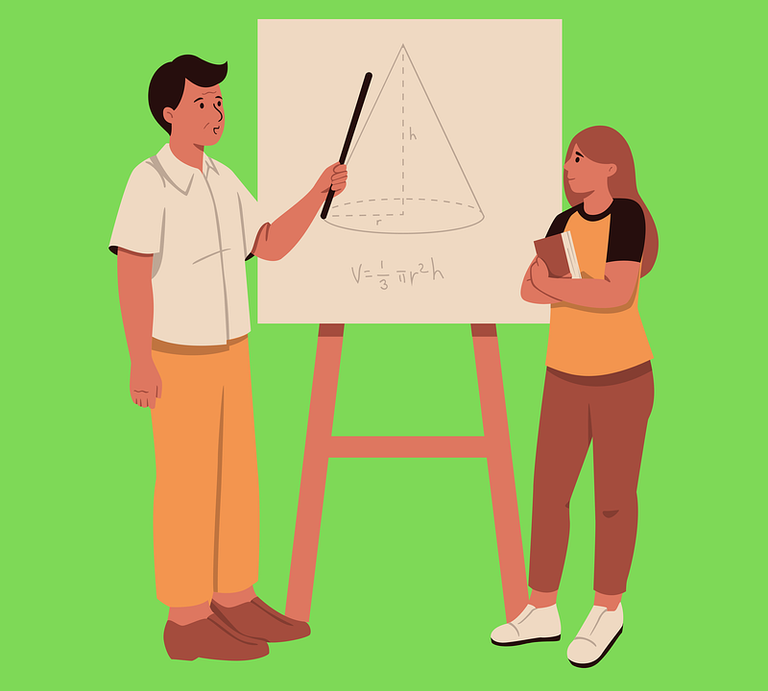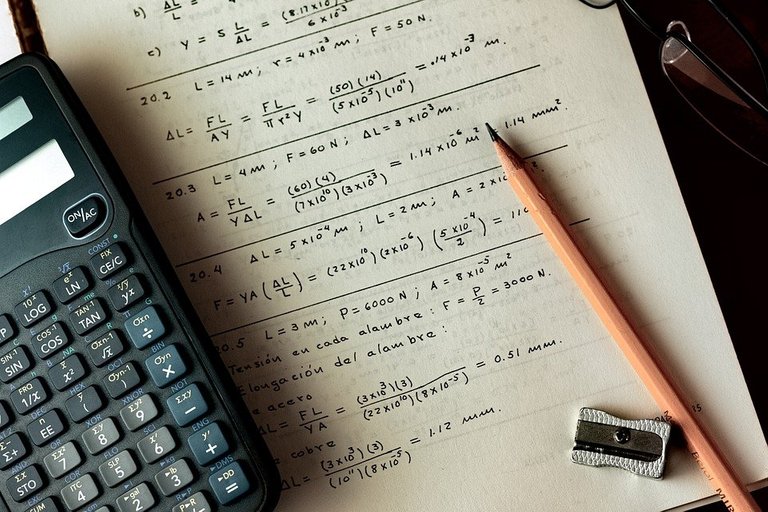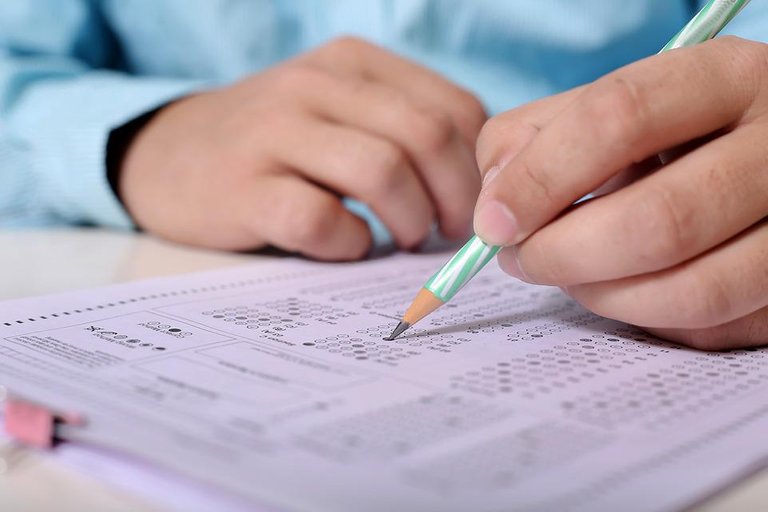Notes About Math Tutoring During Exam Period
Hi there. In this education post I share notes about math tutoring during the exam period. The contents here are mostly theoretical with some experiences from a while back.
Although I talk about math tutoring, the contents in this post can be also for tutoring in any course during the exam period.

Topics
- High Pressure Situation During Exam Period
- Taking On New Math Students During Exam Study Periods
- Prioritizing The Important Topics
High Pressure Situation During Exam Period
For high school students, college students and university students there is a lot of pressure on students to do well in their final exams. Of course there are individuals who don't take school seriously but for this post I assume the students want to do well on their final exams. Final exams usually have a large weighting in many courses. These final exams test students on the entire course, half of the course or material after a midterm test. In either case there is a lot of material to remember.

Taking On New Math Students During Exam Study Periods
Demand for tutors can be high during an exam study period. Students may hire a tutor for extra guidance on what to study, how to study, coaching, clarifying certain topics and/or solving certain questions. The money spent is well worth it in these students eyes as the view the tutoring service as a benefit to their educational and career goals.
The timeframe and session types for both the student and tutor does vary. A student may need just one 60 minute session to cover concepts. The student may want to have multiple sessions spread out to go over some practice problems. For cost savings there may be group tutoring sessions to be held. A student and his/her friends may have a group learning session to cover concepts and practice problems.
From the tutor side, exam periods provide opportunities for making money in exchange of educational services. This sounds nice and all for the tutors available in the market but is taking on a student a low risk decision? In my opinion and limited experience I would say it depends. I say it depends because you don't really know what type of student you get when you first meet and there is limited time until the exam. A good student could be someone who understands most of the material and wants to clarify the few tough topics to go from A to A+. The tutor could get someone who understands half of the material and needs some catching up. A worst case scenario in theory and in reality for a tutor is to get a student who did not do much learning for the first ten weeks of the course and wants to cram a twelve week course into two hours along with the tutor. There are very few students who are able to cram material in two weeks along with good short term memory. Cramming is not great for long term memory and is a low likelihood of success strategy in mathematics learning as material builds upon earlier topics.
If a tutor does end up taking on a student who is far behind then it is really difficult for the tutor to help the student. There could be too much for the student to catch up on in order for the student to be in a position to pass the course or get a high grade. The pressure would be added on the tutor to help the student. If the student fails or does bad then the tutor could be viewed as an enemy even though the student's situation was unrecoverable to begin with. This sounds like an extreme situation but I think this does happen often.

Prioritizing The Important Topics
The student who hires a tutor may have a plan of what topics to focus more on with the tutor. This type of student is proactive, cooperative and is willing to help the tutor help the student with learning. Some students may not know where to start in their tutoring session(s). This is okay as some courses are confusing or the teacher may not be a great communicator. In this case the tutor can provide guidance on where to start for reviewing material.
In the mathematics setting, the math tutor could also review a certain concept in depth if a student may find a difficult topic to be difficult to understand. If the main weakness is algebra then fixing this could be tricky. If the student has a minor algebra mistakes then these mistakes could be fixed and the student could avoid these mistakes on a test. A student with algebra skills that are way below the course level could be difficult to help in such a short timeframe like a day, two-five days or ten days. Algebra is like a language as the more advanced techniques build upon the earlier techniques and the foundational basics.

Concluding Notes
In this post I assume that the tutor being hired for exam periods are knowledgeable and competent. Tutors are there to help those in need but I think the tutor should not do everything for the students. Students also have to take accountability for their own learning and behaviours. It is unrealistic to hire a tutor and expect to go from knowing little to nothing to mastery in 10 days.
From the tutor's side there is a risk vs reward factor in deciding to take a student during an exam period. There is not much time to deal with so you have to be time efficient and effective with your service. The student could be good, okay or bad. The pay could be good but the work and stress that goes along with having a student that is potentially far behind could be too much.
Congratulations @dkmathstats! You received a personal badge!
You can view your badges on your board and compare yourself to others in the Ranking
Check out our last posts: